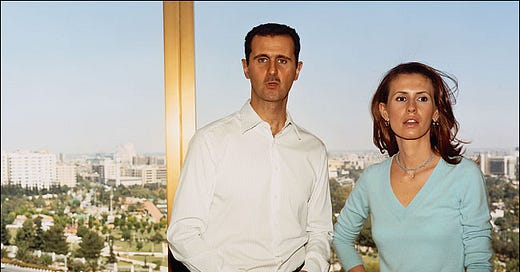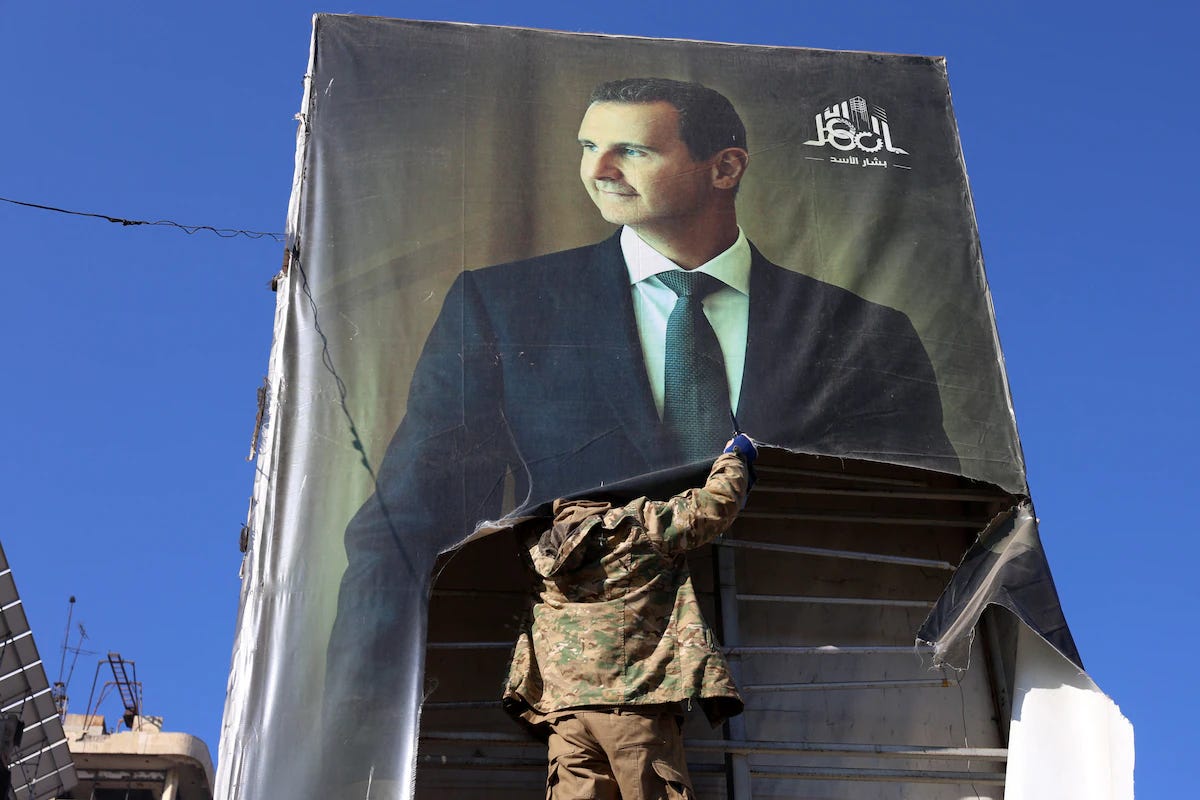The West’s Hollow Victory: Why Removing Assad Won’t ‘Fix’ Syria
The Western fantasy that democracy can be imposed on the Middle East, and the fleeting victory it claims in the process.
Bashar al-Assad is gone. After years of war, sanctions, and relentless Western efforts to isolate him, the man who weathered more than a decade of rebellion and international ostracism has been toppled. His departure is celebrated in some quarters as the long-overdue end of a tyrant. But look closer, and the reality is far more troubling: Assad’s removal has plunged Syria into the hands of a primitive insurgency leader, Abu Mohammed al-Golani, while dismantling the last vestiges of the nation’s modern, secular identity.
The so-called “fall of the House of Assad” is as symbolic as it is tragic. Assad, the British-educated doctor and his glamorous, King’s College-educated wife Asma, once embodied the promise of a cosmopolitan, progressive Syria. Their rule, though controversial, was a stark counterpoint to the chaos that now looms. With their ousting, a country that once prided itself on being the cradle of Arab culture now finds itself led by a figure born of insurgency, whose rise epitomises the very extremism Assad fought to prevent.
For years, Assad was more than just Syria’s president; he was a symbol of defiance against Western imperialism. The man who survived the Arab Spring, a devastating civil war, and countless assassination attempts became a thorn in the side of those who sought to reshape the Middle East to suit their own interests.
The West, after all, never wanted Syria to thrive under Assad. Their obsession with him was rooted not in his alleged tyranny but in his resistance. He stood in the way of their grand strategy: fragmenting states, installing pliant regimes, and redrawing borders.
Now that Assad is gone, the question is: what comes next? If history is any guide, the removal of a strongman rarely leads to the stability Western advocates promise. Libya is a failed state, Iraq continues to wrestle with insurgency, and Afghanistan has reverted to Taliban rule. Syria, too, is unlikely to escape this pattern.
Assad’s fall opens the door for rival factions, sectarian violence, and foreign interference on an even greater scale. The groups that fought to unseat him—from jihadists to Kurdish separatists—will now compete for power, while Western powers and regional actors like Turkey and Israel will jostle to carve out their own spheres of influence.
What remains is a Syria led by a man whose rise was born of chaos and whose legitimacy will always be questioned. While Assad’s enemies celebrate his fall, the Syrian people are left with a grim reality: the departure of a secular, educated leadership and the arrival of a new ruler whose ascent owes more to bullets than ballots.
And for the Syrian people? The sanctions that crushed the economy under Assad’s rule are unlikely to be lifted anytime soon. The West will demand “reforms” from whatever government emerges, dangling reconstruction aid like a carrot while keeping the stick of punishment close at hand.
The West may celebrate Assad’s removal as proof of their enduring influence in the Middle East, but the truth is far less flattering. It is a hollow victory achieved at an incalculable cost to Syrian lives and sovereignty. By prioritising the removal of a leader over the stability of a nation, they have sown the seeds of a conflict that could last for decades.








